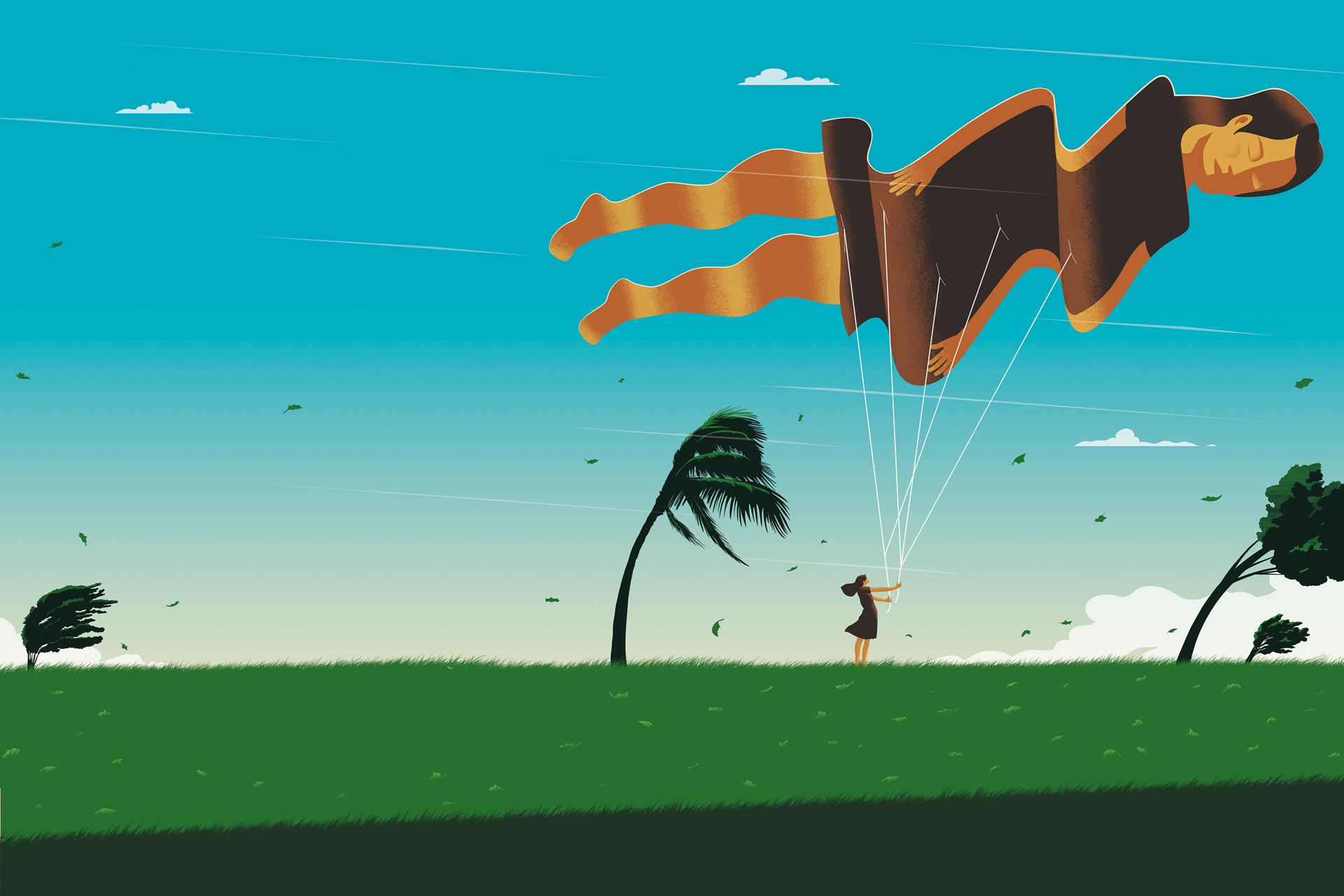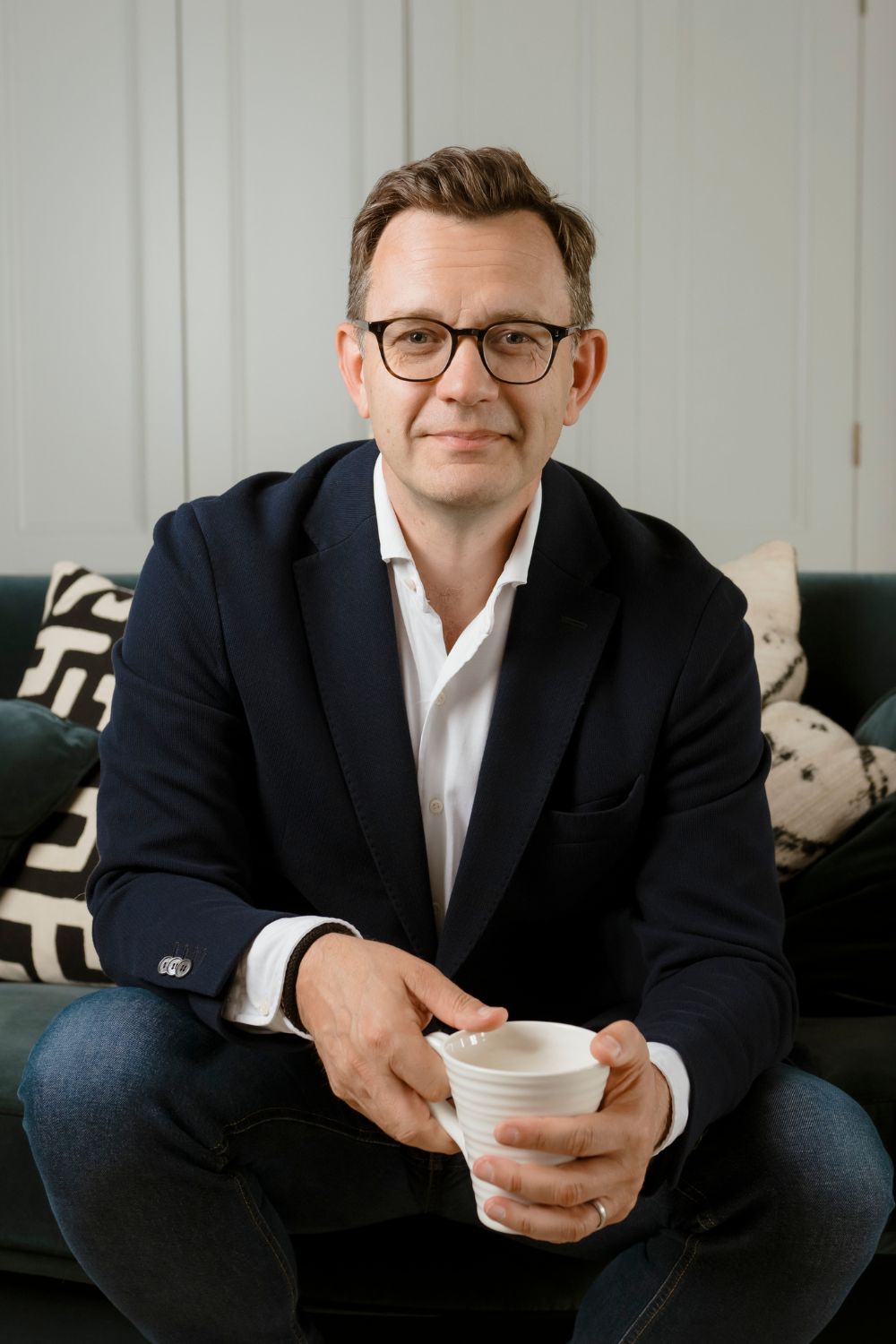Andy Coulson On Why We Should All ‘Be A Bit More Zeno’
By
12 months ago
How the principles of stoicism can get you through tough times

It is control, perspective and gratitude that will save you from bitterness and anger. These are the valuable lessons that Andy Coulson has learnt both from his own crisis and from speaking to others who have faced unutterable challenges.
What Has Andy Coulson Learnt About Getting Through A Crisis?
There is nothing more useless – emotionally, strategically or tactically – than a self-appointed victim.
It’s a lesson I learned the hard way, through literal trial and error, 12 years ago. In the space of 24 months I’d gone from sitting in the US President’s helicopter Marine One with Barack Obama on one side and David Cameron on the other, to sitting on a plastic mattress in a Scottish police cell built for terrorists.
At that point my life was unravelling pretty quickly. Much like the laces that were removed from my shoes ‘just in case’ I found another use for them. As I sat there, I realised that I had totally lost control of my life and that it had become officially absurd. That day is not an experience I would wish on anyone, but I can now look back on 30 May 2012 as a turning point that can only be described as life-changing.
After many months of struggling – and failing – to keep control of a life that was going only backwards, I decided in that moment to accept what was happening to me. Not to give up, anger and bitter, but give in to the fact that I couldn’t change its course.
I realised that although I had absolutely no control of that day, or what would happen in the days and, as it turned out, weeks, months and years ahead, I did have total, absolute control of how I would feel about it. Control over how I would react.
And it’s a decision that has helped me find a way back from my failures to a professional and personal life that is happier, more productive and, I hope, more useful to others than it ever was before.
As an adviser I now put my experience – the good and bad – to work on behalf of my clients as they navigate their way through their own professional and personal challenges. And in my podcast Crisis What Crisis? I share the lessons of others who have survived and thrived through difficulties – almost all far in excess of anything I have experienced. Control is a central theme in so many of those conversations, but there are other lessons, too, that are useful to those whose lives are unravelling through failure or crisis, or both.
Lessons From The Crisis What Crisis? Podcast
Dr Rachel Clarke is a dedicated palliative care doctor, a passionate NHS advocate and bestselling author. In our conversation Rachel helped me better understand how perspective is everything. Rachel spends her working days in the close company of those who know that their lives are soon to come to an end. It is, she says, a profoundly privileged role. And it’s also one that has demonstrated the powerful and valuable perspective of the dying.
As Rachel puts it: ‘For all the distress and grief that there is in a hospice, you see the absolute best qualities of human beings in abundance. You see more of the beautiful good stuff, so I take that psychologically kind of with me when I leave at the end of the day.’
Sarah de Lagarde was another guest with lessons to share. Sarah fell between the platform and a London tube train on a wet evening in September 2022. She lay unseen on the tracks and was hit by two trains, losing her right arm and leg. In the telling of this story one word dominated – gratitude. Sarah told me: ‘I think once you know what it feels like to die… And the fact that I didn’t, gave me so much gratitude. This was a really, really close call and yet I’m still here, I made it. I have been given a second chance and that’s amazing.’
Sarah’s ‘gratitude is the attitude’ approach even extended to her lost limbs. She told me: ‘One of the exercises that I was asked to do was to thank my right arm and my right leg for their sacrifice. Because I was saved. And I should be thankful to those limbs because they allowed me to survive. So, I said goodbye and thank you for your service.’
David Holmes, the former Harry Potter stunt double, has a clear and valuable view on what sits on the other side of the gratitude coin. Bitterness. He was left permanently paralysed from the chest down when a stunt rehearsal on the set of the first Deathly Hallows film went horribly wrong, fracturing his neck.
David told me: ‘By holding onto hate and blame, the person you hurt the most is yourself. You know, bad things happen to people and normally it’s good people they happen to. I decided to take the view that I am having a unique journey on this planet – and I’m going to own it.’
It is these attributes, control, perspective, gratitude and the avoidance of bitterness, that help us build the armoury of resilience that we all need to manage the everyday stresses and inevitable dramas of life.
Stoicism
None of this is new, of course. Stoicism is the philosophy that predates Christianity and that has an interesting origin. When its creator, Zeno of Citium, sat with his special advisers in the third century BC pondering what they should call this new approach, some bright spark (who obviously knew how to manage up) suggested Zenoism.
Zeno later decided he couldn’t call it Zenoism because, in short, he decided (unlike so many of our modern leaders) that it wasn’t all about him. That in fact the answers to most problems begin with looking beyond yourself.
So Zenoism became Stoicism – named instead after the Stoa, or platform, in Athens where the Stoics would meet to discuss their ideas.
It’s only by looking beyond yourself – or ‘being a bit more Zeno’ – that you will begin to find a way to solve your problem or maximise the opportunity that is for some reason beyond your grasp. And if you can appreciate your actual place in the world, understand that what is happening to you is real, surrender control of the things you can’t influence and focus on the things that you can, then a positive way forward will be possible and the hard yards of recovery can begin. It is the self-absorbed, the angry and the ungrateful who will fail when crisis or failure comes calling.
Andy Coulson is the founder of strategic advisers Coulson Partners and host of the Crisis What Crisis? podcast.



















